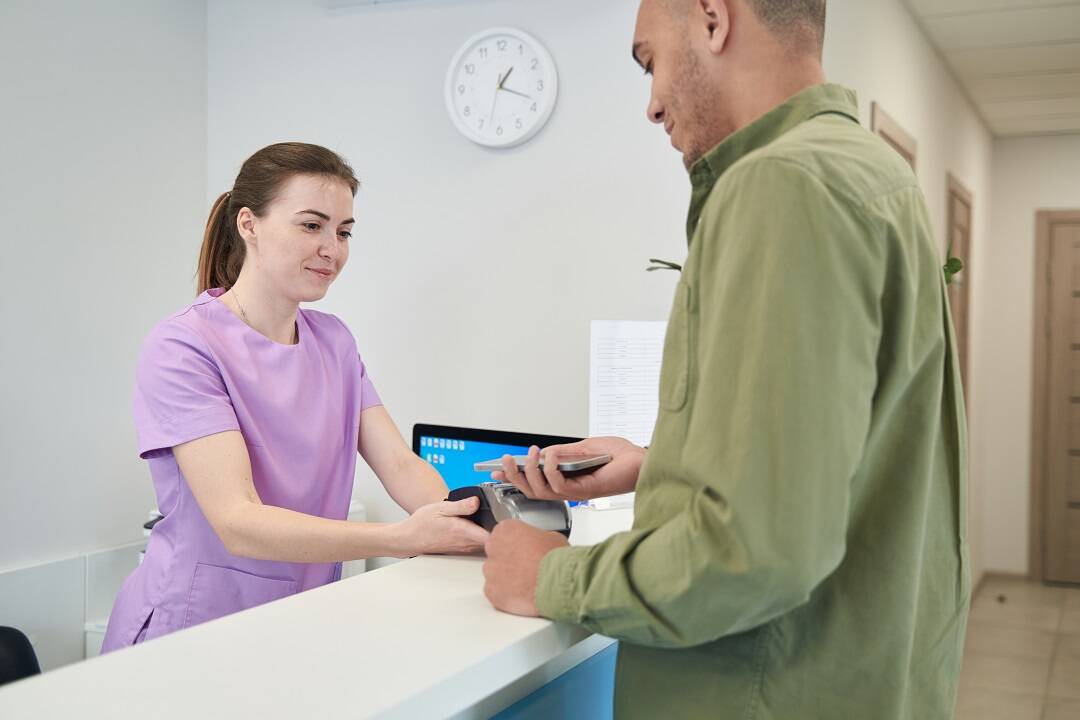

Your receptionists play a crucial role in improving your practices’ patient collections. However, managing collections to facilitate patient billing is more than just a single skill — it’s a multi-faceted process connected with your patient experience.
To train your front desk sufficiently to improve patient collections, you must consider various aspects of your operations when formulating their regimen.
Here are four factors you must consider when training your front desk on healthcare management for billing and collections.
A poor billing experience can cause 36% of patients to switch medical practices, according to a 2023 report by Salucro.
The fundamentals of payment collections and insurance are crucial for every receptionist to learn. Your patients are primarily worried about the effectiveness of their treatment and how they can finance it. If they see that your front desk cannot facilitate the payment process properly, it can affect their perception of your practice.
To ensure that your receptionists fully understand patient payments, you must include these five key aspects:
A joint study between PYMNTS and Rectangle Health on healthcare payments found that 63% of patients are interested in having access to alternative payment plans.
Your receptionists should be oriented in communicating all the payment options that your clinic offers. More importantly, they must be able to coordinate with patients proactively to identify alternative options if conventional methods are beyond the patients’ financial capacity.
Some vital factors to integrate into your front desk training are:
According to Accenture’s 2019 Digital Health Consumer Survey, 65% of patients said healthcare pricing transparency had a significant impact on their decision about which provider to go to.
On the surface, many patients may feel discouraged to pursue treatment if they know the pricing is too high. On the contrary, however, the discouragement likely comes from having little to no information about the pricing of their treatment.
Thus, leveling with patients about the pricing of their treatments is ideal to ensure that they’re well-informed about what they’re paying for. Some facets you must consider are:
The same Salucro study found that 51% of patients would pay their bills quicker if they received a text message reminder.
Patients find it convenient to receive appointment reminders, as these help them keep track of their scheduling. More importantly, they highly prefer receiving clarifications on their fees, as this lets them also plan their finances. In addition, you should include a detailed breakdown of their medical bills in the reminders. This ensures full disclosure after a balance has dropped as patient responsibility when the insurance provider has processed the claim.
Other patient reminder best practices you should consider are:
Learn more tips and tricks for managing patient reminders on this blog!
Your receptionists play the fundamental role of facilitating a positive patient experience that makes patients want to return, which can significantly impact your revenue cycle in the long run.
Here are other ways your front desk can improve your revenue cycle via the patient experience:
Your receptionists play a vital role in improving your practice’s collection rates. Thus, training them on patient collections is integral to enabling them to support your revenue cycle goals. Most importantly, however, your front desk must be well-prepared to facilitate a positive experience that keeps patients returning.
Manifest the power of a remote front desk with WelcomeWare! WelcomeWare is a virtual office receptionist solution that enables your staff to become live receptionists who cover your front desk remotely, improving availability and coverage for enhanced patient collections. Discover how you can integrate WelcomeWare as a patient intake platform for your practice!